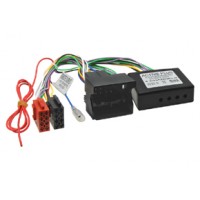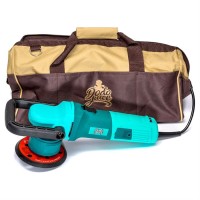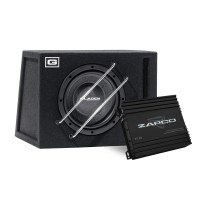Subwoofer in box JL Audio HO112-W6v3
12", 600 W RMS, 2 Ω, 85.4 dB, bass reflex cabinet
More about the product
More about the product
We will help you with your purchase
- Use our consulting room
- You can return the goods to us within 14 days
- Try the product at our store
Subwoofer in box JL Audio HO112-W6v3
Subwoofer system with JL Audio 12W6v3-2 subwoofer with a power of 600 W RMS in a bass reflex enclosure. JL Audio HO stands for "High Output" and that's exactly what you'll hear and feel. The patented High Output cabinets are designed to provide a perfect, high-performance bass experience with a rare combination of excellent sound quality and amazing output. The engineers at JL Audio designed the HO112-W6v3 enclosure to perfectly match the JL Audio W6v3's powerful 12" subwoofer, so you can rely on it for maximum performance. JL Audio's patented chamber-connected port design wraps around the cabinet's interior border and ends just above the bass speaker, thus connecting the output of the port to the direct output of the woofer. This also allows to provide the necessary area and length of the port to maximize the performance of the W6v3 subwoofer. A great subwoofer for both sound quality and high performance.Handmade in the USA
JL Audio uses state-of-the-art automated woodworking equipment to produce a high-quality MDF cabinet with durable automotive carpet, steel mesh grille, 5-way connecting posts and solid internal wiring. The enclosure is built and inspected by hand in a Florida manufacturing facility to ensure you get the bass you expect from JL Audio. Automotive grade gray Wedge carpeting gives the system a radical look while protecting the MDF enclosure. Heavy internal bracing and a recessed mounting baffle maintain enclosure integrity and protect the subwoofer without the need for a protective grille.About the JL Audio brand
JL Audio is an American manufacturer of consumer audio equipment that specializes in home, vehicle and boat sound systems. It is one of the main pioneers of vehicle sound systems and is undoubtedly best known for its high-end subwoofers. The company was founded in 1975 and is therefore one of the oldest manufacturers in this field. The original focus was on home sound systems, but already at the turn of the seventies and eighties, they also started to deal with the car audio segment, the popularity of which grew rapidly at the time. During their rich history, JL Audio produced a lot of completely unique and patented subwoofers that had almost no competition at the time. And it is similar even now. Subwoofers from this manufacturer amaze with their performance and at the same time absolutely top sound quality, unique patents and excellent workmanship. In particular, the top W6 and W7 series have long been among the most interesting products on the market today. However, the revolutionary flat subwoofers of the TW1 and TW3 series, as well as the perfectly tuned subwoofer enclosures, will also impress. You can expect the same quality from the amplifiers, and it's also worth noting the high-end products designed for integration into factory audio systems. In short, you can't go wrong with JL Audio products and you can always rely on their high quality and uniqueness.
| Catalog number | HO112-W6V3 |
| Brand | JL Audio |
| Links | Official web presentation (English) |
| RMS powerThe RMS power of the subwoofer is constant power. This is also the performance of continuous use of the subwoofer. If you exceed the power for a longer period of time, irreversible damage or subwoofer voice coil burning! You can tell if the subwoofer is overloaded by the vibration of the subwoofer membrane. | 600 W |
| The diameter of the subwoofer in the box | 300mm (12") |
| Sensitivity (SPL 1W/1m)Subwoofer sensitivity or efficiency. The sensitivity of the subwoofer is given in decibels (dB) and, in simple terms, means that the higher the value, the lower the demands on the power of the amplifier. This is a de facto rating of how a subwoofer converts watts to sound. Sensitivity ratings are in noise level measured at 1 meter from the subwoofer using 1 W (watt of power) or using 2.83 volts at the source at 1 meter. A higher decibel level means the subwoofer is louder with less power. For every 3 dB increase in sensitivity, the subwoofer requires half the power to reproduce the same volume. For example, if an 88dB subwoofer needs 300 Watts to produce a certain volume, then a subwoofer with a sensitivity of 91dB needs only 150 Watts to reach the same volume. | 85.4 dB |
| ImpedanceImpedance - measurement of electrical resistance. When buying a subwoofer, it is very important that everyone make sure that the impedance is compatible with the amplifier that you are connecting to it. For subwoofers with a double voice coil, we recommend following the information in the advice center! Example: A 2 Ohm subwoofer cannot be connected to an amplifier that is only stable up to 4 Ohms. A 4 Ohm subwoofer can easily be used with an amplifier that is stable up to 2 Ohms. Connecting a 4 Ohm subwoofer to an amplifier that is stable up to 4 Ohms also without problems. The most common subwoofer impedance is 4 Ohm. Example: A 2 Ohm subwoofer cannot be connected to an amplifier that is only stable up to 4 Ohms! A 4 Ohm subwoofer can easily be used with an amplifier that is stable up to 2 Ohms. The most common impedance of subwoofers is 1 x 4 Ohm. | 2 Ω |
| Loudspeaker typeThe closed enclosure is characterized by a simple construction. Closed enclosures are usually smaller than bass-reflex enclosures, and a special damping fleece is used for their damping. A closed baffle has the advantage of preventing an acoustic short between the front and back radiation of the subwoofer diaphragm. The disadvantage is that the closed enclosure raises the natural resonance frequency of the used subwoofer and thereby also increases the lower limit frequency. This is because the back side of the diaphragm is forced to compress and dilute the air inside the enclosure when the subwoofer is radiating in a closed enclosure. This adds to the inherent stiffness of the subwoofer's oscillation system the stiffness of the air in the closed enclosure. This causes an increase in the stiffness of the oscillating system and thus an increase in the resonant frequency of the entire system: subwoofer -> loudspeaker. The increase in resonant frequency for a given subwoofer is greater, the smaller the volume of air in the closed enclosure. The relatively small volume of air in the closed enclosure acts on the subwoofer as an acoustic spring when radiating the back side of the membrane into the enclosed enclosure. USE: Mainly for quality bass listening in the entire band with an emphasis on detail and accurate reproduction in the lower band. Pros and cons: + pure reproduction + small closets + easier tuning - low level of efficiency in deep bass - loudness only at the cost of enormous deflection of the diaphragm - a significant acoustic pressure cannot be expected The bass reflex enclosure is designed in the same way as a closed enclosure, but it also has a so-called bass reflex mouthpiece, or "bass reflex". Needle foam is used to dampen bass reflex enclosures. USE: The ideal use is in cases where the listener wants to achieve a high volume and a good sound pressure level. It is the best compromise between sound quality and performance and is also the most commonly used Pros and cons: + good efficiency in deep bass + a small deflection of the membrane is enough for a large volume - reproduction less accurate than with closed enclosures | Bass reflex |
| What is the baffle made of?Subwoofer enclosures are usually made of 18-22 mm MDF board or pressed chipboard. Due to its higher strength, MDF board is a better material than ordinary chipboard. | MDF |
| Dimensions of the boxEnclosure dimensions are given as height, width and depth, which is often longer at the bottom edge than at the top, due to the bevel of the rear wall. | 368 x 406 x 610 mm |
| Box weight incl. subwoofer | 27.52 Kg |
Product comments
Evaluation
ask us



























